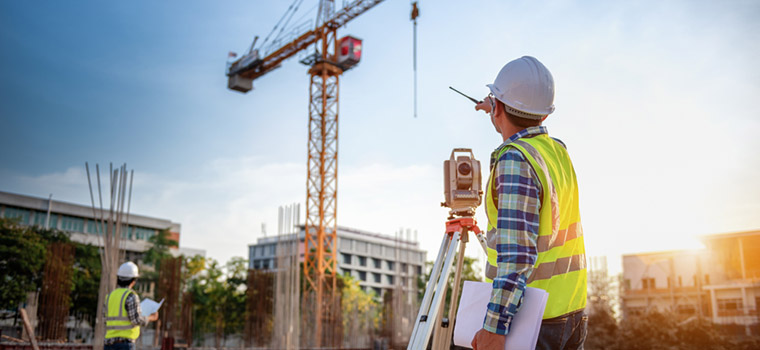Elevate Your Skills: General Construction Best Practices
In the vibrant landscape of construction, the quest for quality in task execution is continuous. The trip towards mastery starts with a dedication to these fundamental columns, each holding a critical piece of the puzzle for crafting remarkable end results in building projects.
Precaution
In the world of basic construction, carrying out thorough precaution is vital to make certain the well-being of all personnel associated with the building process. Security must constantly be a leading concern on any kind of building and construction site, no matter the scale or complexity of the project. This involves conducting comprehensive danger evaluations, supplying appropriate security training to all employees, and implementing stringent adherence to security procedures whatsoever times.
One of the fundamental precaution in construction is the correct use individual safety devices (PPE) This includes items such as construction hats, handwear covers, security goggles, and steel-toed boots, which are necessary for securing workers from potential hazards. Pittsburgh Contractors. Normal safety and security assessments ought to also be conducted to identify and attend to any type of potential threats on the website quickly

Reliable Preparation
Effective planning plays a vital function in the success of any type of building project, laying the structure for well organized implementation and timely completion - Pittsburgh Contractors. The initial stage of effective planning involves establishing clear purposes, developing a reasonable timeline, and creating a detailed spending plan. Job managers need to perform complete site assessments, consider possible dangers, and develop backup plans to mitigate any kind of unanticipated challenges that might develop during the building and construction process
Efficient interaction amongst group participants and stakeholders is key to making sure that every person is aligned with the job's objectives and timelines. By spending time and resources into reliable planning, building jobs are much better placed for success, with minimized delays and expense overruns.
Quality Assurance
Keeping rigorous high quality control procedures is extremely important in ensuring the structural stability and security criteria of building and construction tasks. Quality assurance in general construction involves methodical evaluations, examinations, and checks to ensure that all products, craftsmanship, and procedures satisfy the given demands and requirements. By carrying out a durable quality assurance system, building experts can determine problems at an early stage, correct problems promptly, and stop expensive rework or delays.
One vital element of quality assurance is conducting complete assessments at different stages of the construction procedure. Examiners ought to evaluate materials for conformity with market standards, verify that building and construction methods line up with best techniques, and make sure that all work meets the task specs. Additionally, top quality control procedures typically involve screening procedures to evaluate the toughness, toughness, and safety of architectural elements.
Regular interaction and collaboration amongst project stakeholders, consisting of engineers, engineers, contractors, and high quality control personnel, are important for reliable quality assurance execution. By fostering a culture of top quality awareness and attention to information, construction teams can maintain high standards of workmanship and provide effective projects that satisfy or go beyond client assumptions.

Team Cooperation
Efficient collaboration amongst construction group members is pivotal to job success, fostering smooth communication and shared liability in accomplishing usual goals. Group partnership in construction includes numerous stakeholders, including engineers, engineers, subcontractors, contractors, and vendors, functioning together cohesively throughout the job lifecycle. By advertising open interaction channels, establishing clear duties and responsibilities, and urging a culture of mutual respect, building and construction teams can improve performance, mitigate risks, and make sure task milestones are met in a timely manner and within spending plan.
Regular team meetings, development updates, and joint analytic sessions are vital elements of reliable group collaboration in construction projects. Motivating active involvement and valuing varied viewpoints can bring about cutting-edge solutions and improved project outcomes. Additionally, promoting a helpful team atmosphere where members feel empowered to share ideas and raise concerns adds to a positive work society that encourages people to execute at their redirected here ideal.
Modern Technology Assimilation
Including sophisticated technical services into construction processes has actually come to be progressively necessary for enhancing job efficiency and facilitating smooth cooperation amongst team members. Modern technology assimilation in building encompasses a wide array of devices and software application designed to simplify numerous elements of project monitoring, layout, and execution. Building Details Modeling (BIM) software application, for instance, permits the creation of thorough 3D designs that boost visualization, sychronisation, and decision-making throughout the project lifecycle. Job management systems such as Procore or Autodesk BIM 360 enable real-time cooperation, document sharing, and progression tracking amongst staff member, no matter their physical place. Drones and laser scanning modern technologies aid in website surveying, development monitoring, and high quality control, giving precise information that enhances decision-making and decreases mistakes. Embracing cloud-based options for information storage company website and interaction better enhances availability and information sharing among stakeholders. By leveraging these technical technologies, construction experts can significantly improve job end results, minimize dangers, and provide tasks more effectively.
Verdict
In conclusion, the application of thorough safety procedures, efficient planning, high quality control, group collaboration, and innovation assimilation are important elements of effective construction projects. By prioritizing safety and security, conducting comprehensive danger analyses, and providing sufficient training, building groups can make certain a secure working atmosphere.
In the world of basic building and construction, implementing extensive security procedures is extremely important to make certain the well-being of all personnel involved in the construction process.Preserving extensive high quality control procedures is vital in making sure the architectural stability and security requirements of building jobs.Routine team meetings, progress updates, and collaborative problem-solving sessions are important components of effective group cooperation in building and construction jobs. By leveraging these technological developments, article source construction professionals can substantially boost task results, lessen dangers, and deliver tasks extra effectively.
In final thought, the implementation of comprehensive safety and security procedures, effective planning, top quality control, team collaboration, and modern technology combination are vital components of effective building projects.